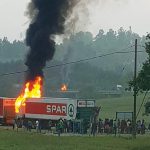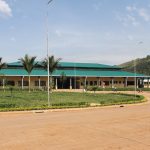Magic at the fork in the road
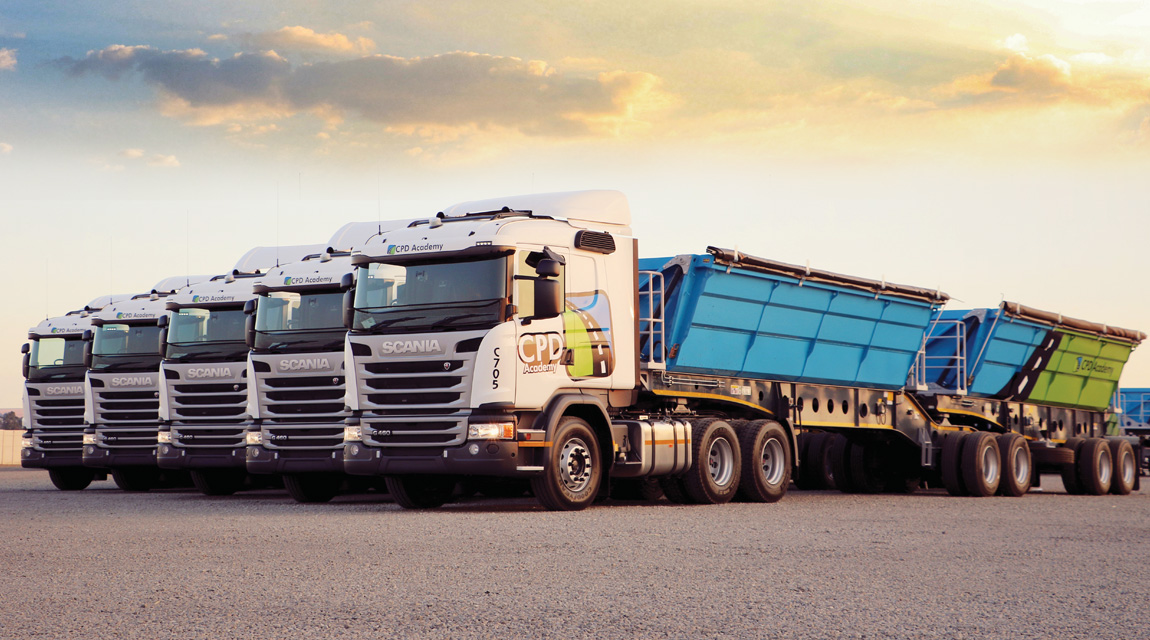
Scania South Africa is a company that likes to work with forward thinkers – so partnering with the Reinhardt Transport Group in its Commercial Professional Driver (CPD) Academy was the perfect way to be involved in upskilling the nation’s future truck drivers. GAVIN MYERS visited the eye-opening Academy as a journalist, and very nearly walked out as a learner truck driver…
Following the road on the outskirts of Nigel, a town in the eastern region of Gauteng, one comes to a fork. Continuing on the left side leads to, well, I don’t quite know where to be honest – but branching to the right leads to an unassuming red gate beyond which all manner of magic happens.
What sort of magic? Well, for the past 11 months the Reinhardt Transport Group, in association with Scania South Africa and various other partners, has run its CPD Academy at this location – and the first group of what could very well be the most thoroughly trained truck drivers in the country will soon emerge ready to hit the road.
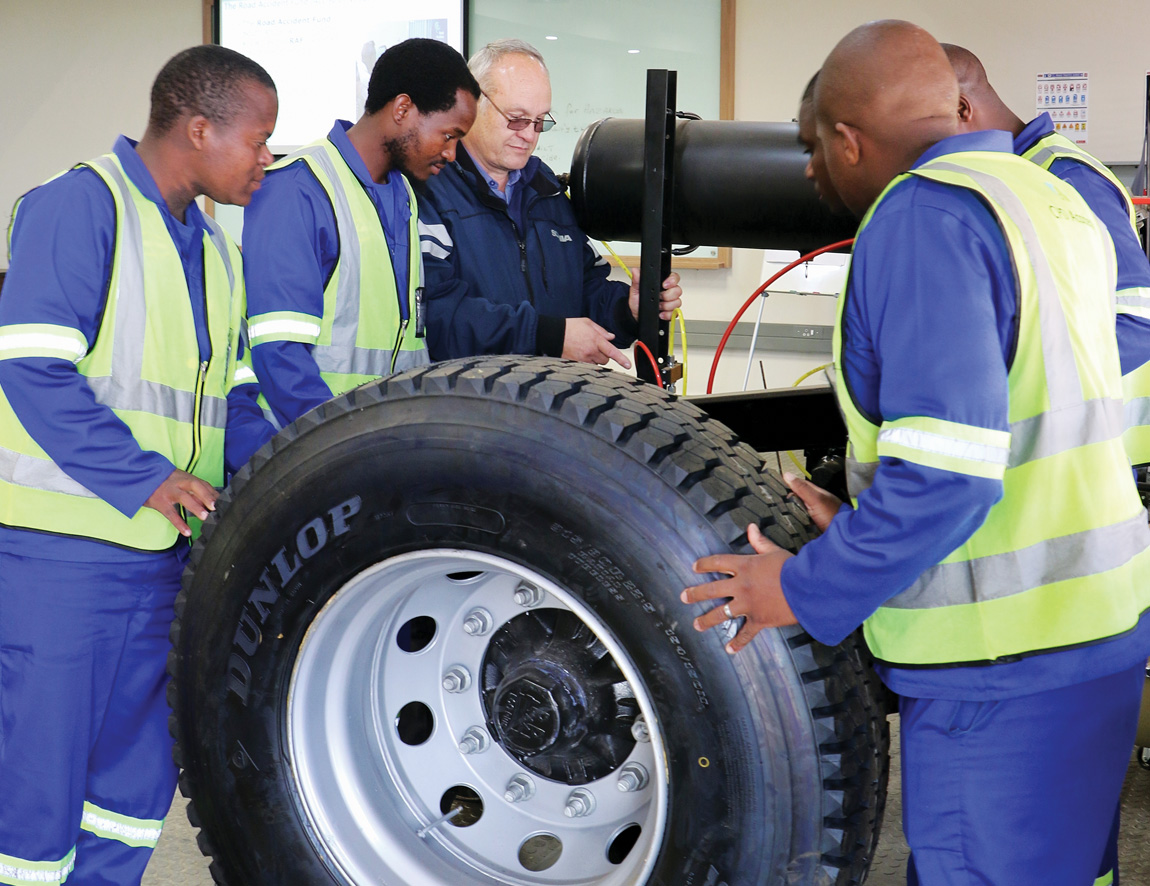
And that is no exaggeration – given that it is widely accepted that the level of driving skills in the industry is declining.
“We are doing things differently,” explains Rodney Houston-McMillan, Group COO. “We want to train drivers who are passionate about their trucks and their jobs,” he says.
What this entails is a year of training, which is split into three phases. The first consists of two months of NQF
Level 3 theory, as well as yard and practical training – everything from hand-eye coordination to reversing around corners forms part of this phase.
The training goes further, though, and teaches the basic mechanics of a truck and trailer; such as how the various components work, how to change a tyre or to use a GPS. This teaches the drivers a degree of mechanical awareness, so that if something were to break down, they would be able to relay accurate information to the control room so that the correct spares can be sent out and downtime minimised.
Importantly, too, drivers are taught to drive manual and automatic-transmission trucks … though it’s only from phase two that they may hit the road.
This second two-month phase sees drivers complete 22 000 km/540 hours behind the wheel of the Academy’s Scanias, but only with the guidance of a qualified driver trainer.
During phase three, the learners undergo eight months of solo driver training – 128 000 km/2 550 hours in all.
As we tour the grounds (it’s really like being in a very well-run and well-equipped college) Houston-McMillan explains that, once they are deemed fit to join, the learners pay a registration fee of R850 and are given everything they need – including lunch at the canteen and a basic salary that increases as they progress through the programme. Groups of ten (eight men and two women) are inducted into the course every two weeks.
For the Reinhardt Group, the benefits are obvious. In addition to increasing its pool of driver talent (and that of the industry, as not all successful drivers will land up in the Group), it also helps to meet the pressing socio-economic development needs of the communities in which the company operates.
“Reinhardt sees the need to invest in these communities and support them by developing, investing in and employing their people, rather than just giving handouts,” Houston-McMillan says.
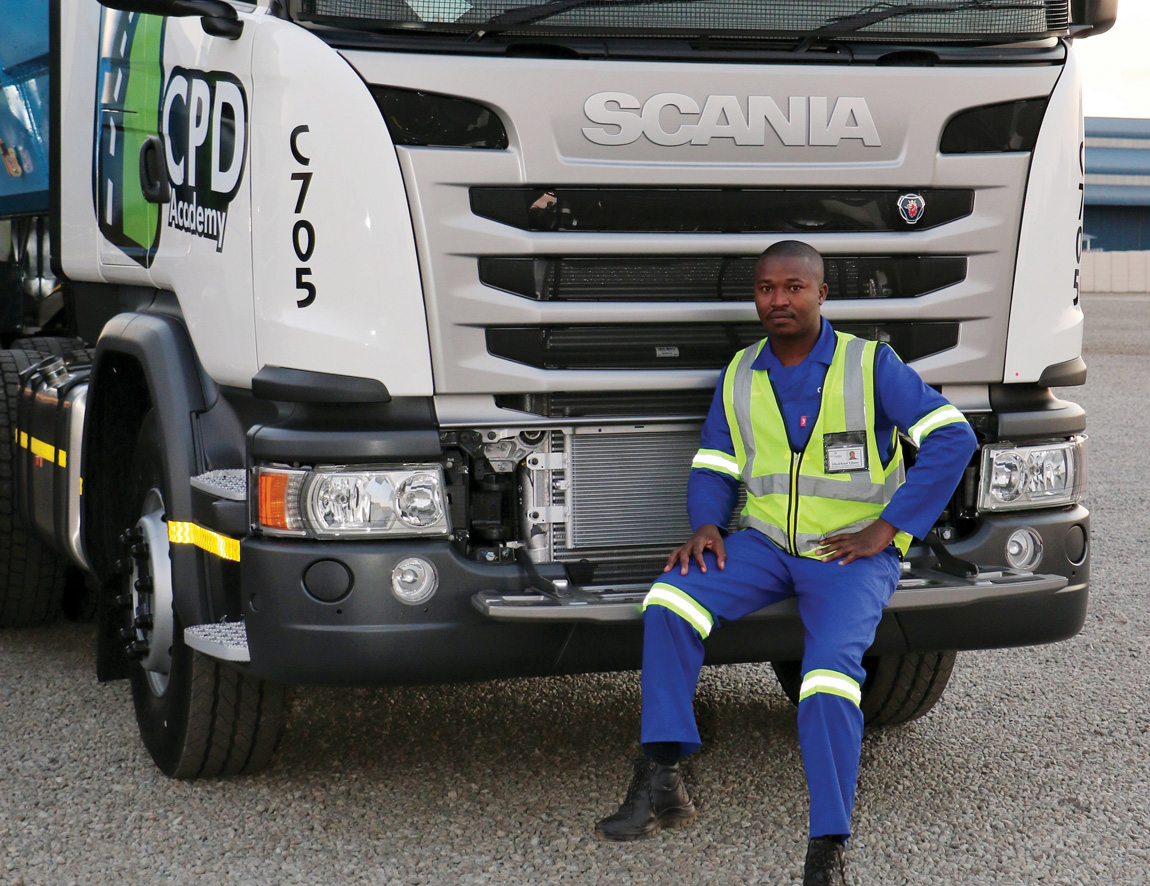
Houston-McMillan continues: “Our business is changing. By building on the strong foundations laid by Derick Reinhardt over the last 36 years, we’re aiming to double the size and capability of the Group.
“The Academy will play a leading role in this. People are starting to realise that becoming a truck driver is not too bad … at the same time, the industry will be absorbing younger people. The future of the Reinhardt Group means investing in its people. It will be a long road, but it will be worthwhile.”
While Scania South Africa trains Reinhardt’s driver trainers, being a partner in the programme was an opportunity it couldn’t pass up.
“It’s a big thing for us to be part of an investment like this. There is a lot of passion behind this concept from both Reinhardt and Scania; we feel vested in it,” comments Johnny-Ray Basset, key account manager, national fleet, at Scania South Africa.
“It is good for the industry as a whole, as drivers are the most important people in this industry. This is a perfect opportunity to invest in future drivers,” he continues.
Houston-McMillan suggests that the Academy has already caught the attention of other industry players and, as it evolves, he sees other partners joining.
In the meantime, though, as the Academy celebrates its first year in operation with the graduation of its first batch of drivers, the South African transport industry can celebrate the fact that a new generation of talented, passionate drivers is being groomed. “Magic” might not be strong-enough a word…
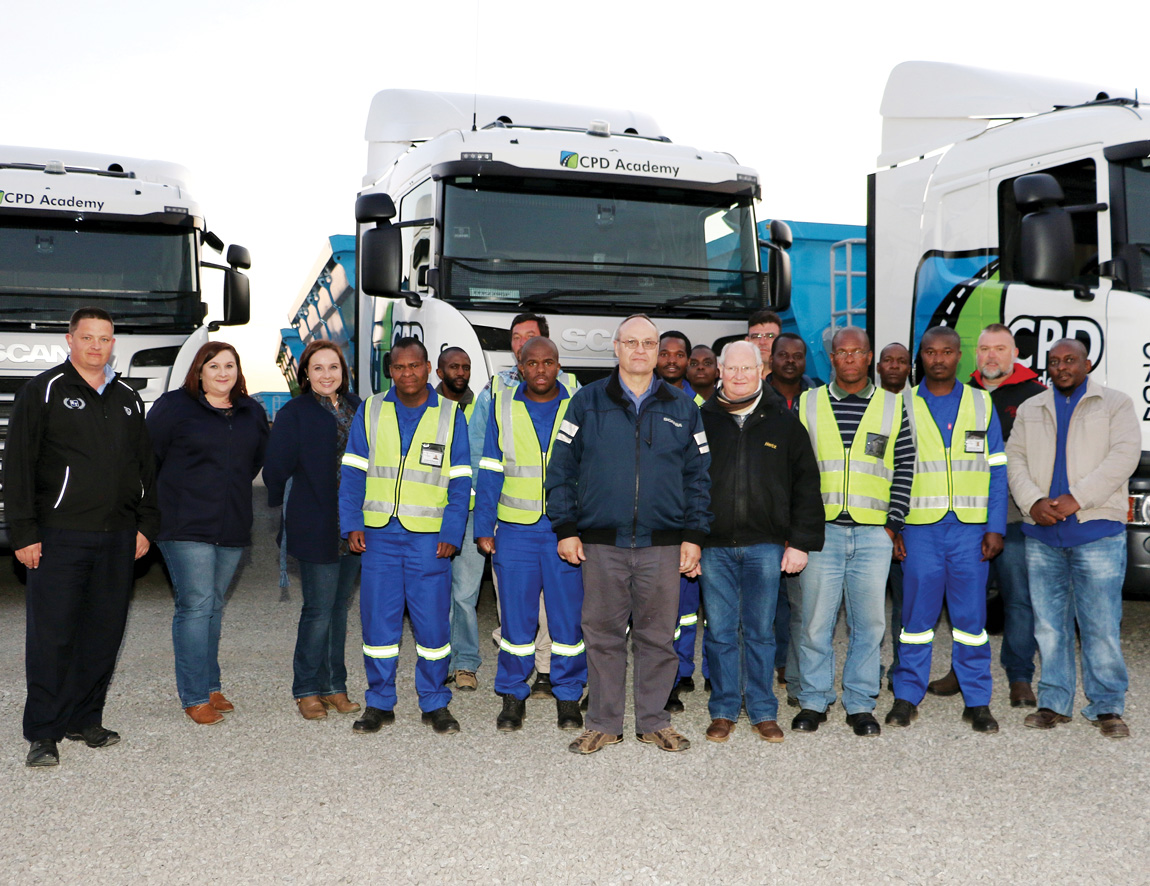
Celebrating the largest fleet of Scania vehicles in SA
The Reinhardt Group’s fleet currently consists of 622 trucks – 592 of which are Scania, meaning this is the largest fleet of Scania trucks in the land. This is not an achievement that has come about by chance … the two companies work virtually as one to ensure Reinhard’s operation is the best it can be.
“There is a lot of synergy between Scania and Reinhardt. I don’t think there are many other original equipment manufacturers that provide the level of backup service and support we have received from Scania,” comments Houston-McMillan.
The relationship has been six years in the making (Reinhardt is soon to purchase its 1 000th Scania) and, for the past three years, Scania has integrated itself into Reinhardt’s operations.
“While all trucks in the fleet are on maintenance contracts, we have placed 20 fully fledged Scania staff in Reinhardt’s five workshops around the country and the Reinhardt Group also has its own parts holding of Scania spares,” explains Basset.
The Reinhardt Group makes use of Scania’s full suite of solutions. Each vehicle is purchased though Scania Finance and insured through Scania Insurance. The Scania Fleet Management C300 system allows accurate tracking and reporting of drivers and their rigs.
“This software allows us to make predictions and achieve targets set out for our trucks and drivers. Margins in this business are so small that we have to manage each and every cent per kilometre – they all add up,” says Houston-McMillan.
The setup is clearly working, as preventative maintenance has picked up, leading to less downtime and vastly improved cost per kilometre, Houston-McMillan adds.
The Reinhardt Group replaces its trucks every three years or 600 000 km. In the future, some of the decommissioned trucks will be fed into the CPD Academy.
Published by
Focus on Transport
focusmagsa

